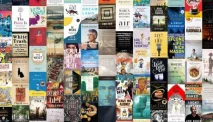Petik.net - Franz Kafka is one of the most celebrated literary figures of the 20th century. His unique style and themes have left an indelible mark on the literary world, and his works continue to fascinate readers even today. Kafka's books have been translated into numerous languages, and his influence can be seen in the works of many contemporary writers.
In this article, we will delve into the life and legacy of Franz Kafka, explore his most famous books, and examine why they remain relevant and significant in today's world. So, let's take a journey into the surreal and enigmatic world of Franz Kafka.
Who was Franz Kafka?
Franz Kafka was a renowned writer born in Prague, then part of the Austro-Hungarian Empire, on July 3, 1883. He was the eldest son of a middle-class Jewish family. Kafka was educated at Charles University in Prague, where he studied law. After completing his studies, he worked as an insurance clerk, a job that he found tedious and uninspiring. Kafka's true passion was writing, and he spent much of his free time writing stories and novels.
Kafka's works are known for their surreal and nightmarish themes. His characters often find themselves trapped in bureaucratic systems and facing the absurdities of modern life. Kafka's works are considered to be some of the most influential and significant works of modern literature.
Kafka was plagued by poor health throughout his life and died in 1924 at the age of 40 due to complications from tuberculosis. At the time of his death, he was virtually unknown outside of a small circle of literary friends. However, after his death, his works gained widespread acclaim, and he is now considered one of the most important literary figures of the 20th century.
The Kafkaesque Legacy
Kafka's legacy is a complex one, and his influence can be seen in many areas of modern culture. The term “Kafkaesque” has become a popular way of describing situations that are surreal, nightmarish, and bureaucratic in nature. Kafka's works have inspired many other artists, including writers, filmmakers, playwrights, and musicians.






